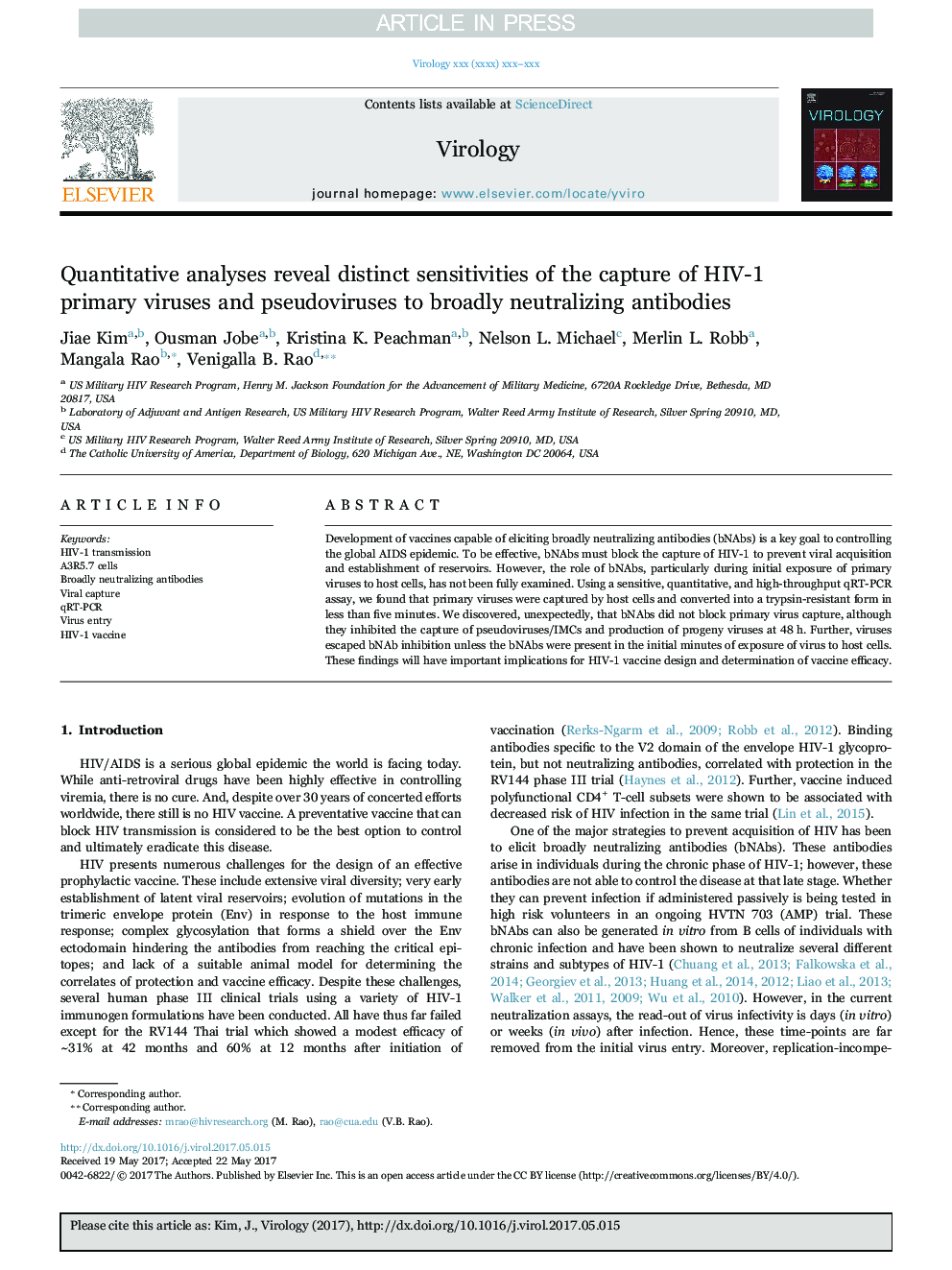| Article ID | Journal | Published Year | Pages | File Type |
|---|---|---|---|---|
| 5675031 | Virology | 2017 | 11 Pages |
Abstract
Development of vaccines capable of eliciting broadly neutralizing antibodies (bNAbs) is a key goal to controlling the global AIDS epidemic. To be effective, bNAbs must block the capture of HIV-1 to prevent viral acquisition and establishment of reservoirs. However, the role of bNAbs, particularly during initial exposure of primary viruses to host cells, has not been fully examined. Using a sensitive, quantitative, and high-throughput qRT-PCR assay, we found that primary viruses were captured by host cells and converted into a trypsin-resistant form in less than five minutes. We discovered, unexpectedly, that bNAbs did not block primary virus capture, although they inhibited the capture of pseudoviruses/IMCs and production of progeny viruses at 48Â h. Further, viruses escaped bNAb inhibition unless the bNAbs were present in the initial minutes of exposure of virus to host cells. These findings will have important implications for HIV-1 vaccine design and determination of vaccine efficacy.
Related Topics
Life Sciences
Immunology and Microbiology
Virology
Authors
Jiae Kim, Ousman Jobe, Kristina K. Peachman, Nelson L. Michael, Merlin L. Robb, Mangala Rao, Venigalla B. Rao,
